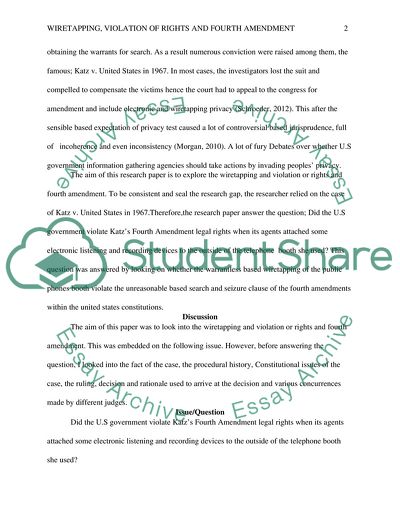Cite this document
(Wiretapping and Violation of Rights and Fourth Amendment Research Paper Example | Topics and Well Written Essays - 2750 words, n.d.)
Wiretapping and Violation of Rights and Fourth Amendment Research Paper Example | Topics and Well Written Essays - 2750 words. https://studentshare.org/politics/1839270-wiretapping-and-violation-of-rights-and-fourth-amendment
Wiretapping and Violation of Rights and Fourth Amendment Research Paper Example | Topics and Well Written Essays - 2750 words. https://studentshare.org/politics/1839270-wiretapping-and-violation-of-rights-and-fourth-amendment
(Wiretapping and Violation of Rights and Fourth Amendment Research Paper Example | Topics and Well Written Essays - 2750 Words)
Wiretapping and Violation of Rights and Fourth Amendment Research Paper Example | Topics and Well Written Essays - 2750 Words. https://studentshare.org/politics/1839270-wiretapping-and-violation-of-rights-and-fourth-amendment.
Wiretapping and Violation of Rights and Fourth Amendment Research Paper Example | Topics and Well Written Essays - 2750 Words. https://studentshare.org/politics/1839270-wiretapping-and-violation-of-rights-and-fourth-amendment.
“Wiretapping and Violation of Rights and Fourth Amendment Research Paper Example | Topics and Well Written Essays - 2750 Words”. https://studentshare.org/politics/1839270-wiretapping-and-violation-of-rights-and-fourth-amendment.


